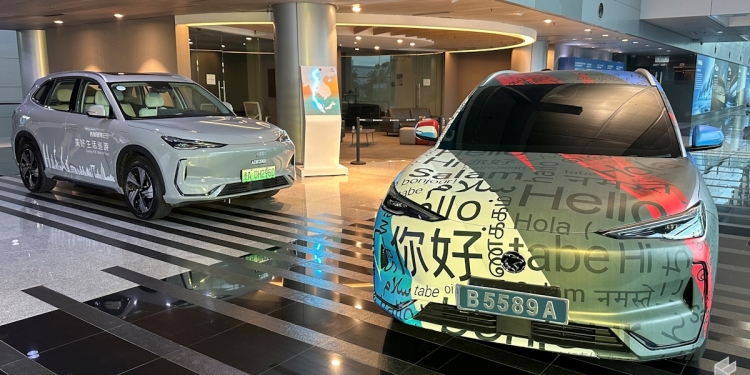Proton made a big splash last weekend by announcing RM120,000 is the estimated price tag for its first production electric vehicle, the Proton e.MAS 7. The company has also officially unveiled the interior of the EV as well as the full technical specifications to the public for the first time.
Since the interior and most of the specs are identical to the Geely Galaxy E5, some may feel that the e.MAS 7 is just a simple rebadge. Proton has maintained that is not the case and insists that both models were co-developed under the same project.
Upon going through the specs sheet as well as previous announcements made by the national automaker, there are indeed a few things that give e.MAS 7 some advantages over the Galaxy E5.
Proton e.MAS 7 has a faster 11kW AC charging
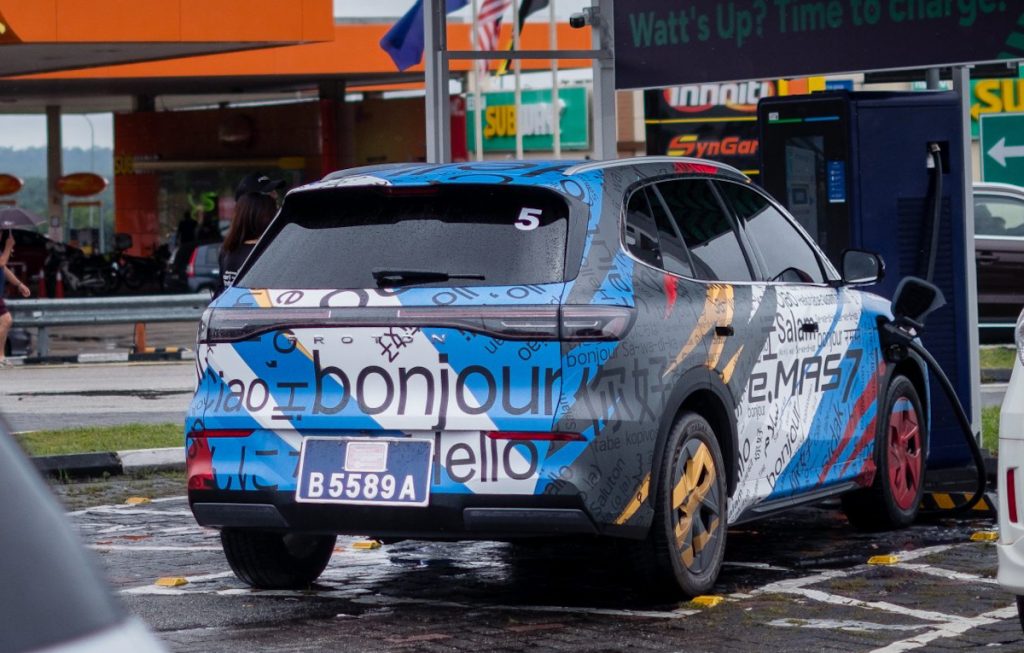
Proton said that its new EV will come standard with an 11kW 3-phase AC onboard charger (OBC). This applies to both the low-spec e.MAS 7 Prime and high-spec e.MAS 7 Premium.
While Geely did not list the exact AC charging speed for Galaxy E5 on its website, the company did mention that it takes around 9 hours to get from 10% to 100% for the Galaxy E5 with a 60.22kWh battery. The version with a 49.52kWh battery can do so in 7.5 hours according to the website.
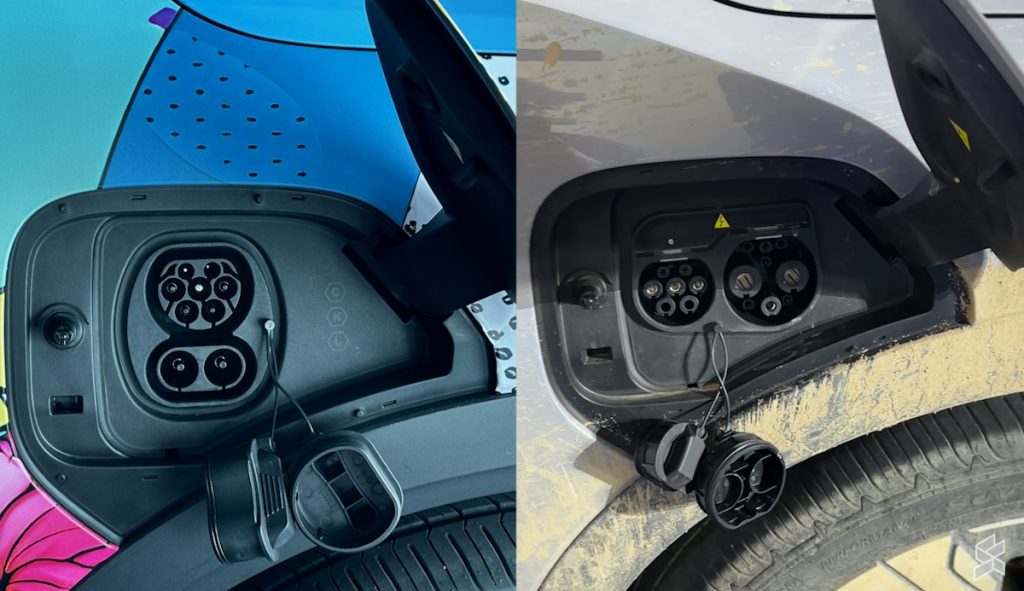
If you take those figures, we can safely deduce that the Galaxy E5 has been fitted with a 6.6kW single-phase OBC. This means the e.MAS 7 can be charged to full through AC charging much faster than its Geely-branded counterpart in China.
With the 11kW OBC, the e.MAS 7 can theoretically be fully charged within 5 to 6 hours through AC charging depending on the variant which is 2.5 to 3 hours faster than Galaxy E5. However, Proton is much more conservative with the figures and has said that it would take 4.9 hours for the e.MAS 7 Prime to go from 10% to 80% while the charging time for the e.MAS 7 Premium is 6.1 hours.
Proton e.MAS 7 has better water wading capability
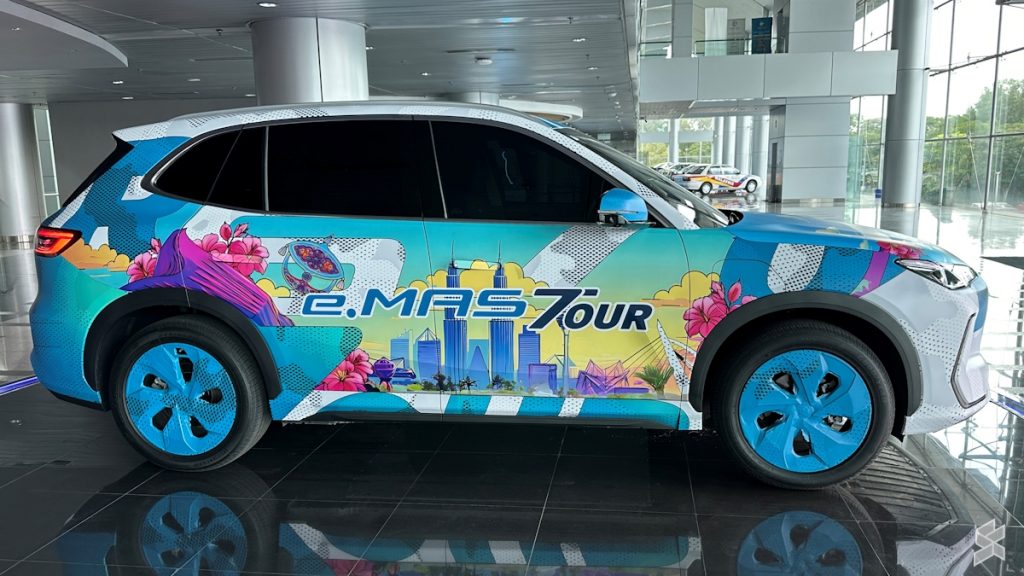
Proton has previously said that the e.MAS 7 has been tweaked to the extent that it has better water wading capability than the Galaxy E5. Specifically, the EV successfully went through water wading tests back in July at a depth of 400mm (0.4m) that is meant to simulate flood.
While the 400mm figure might not sound deep enough, you may have to see it in real life to notice how serious that water depth really is. We have been trying to get Proton to release the actual test footage since last month but until that happens, here’s footage from India that shows what a 400mm water wading test looked like:
The water wading test was just one of the various tests that the e.MAS 7 has to go through to make the EV suitable for the Malaysian market. The new EV will also be put through ASEAN NCAP accreditation very soon as well.
Proton e.MAS 7 will feature a much better suspension setup
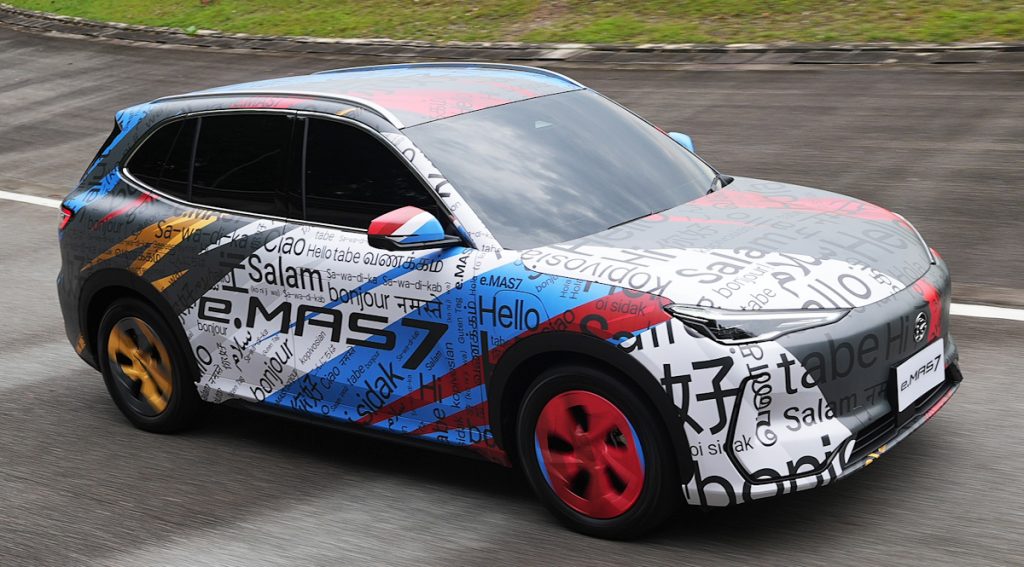
When it comes to ride and handling, the majority of Chinese-made EVs that were released in Malaysia have a rather soft suspension setup. This allows them to offer comfortable rides but comes at the expense of handling since they would feel floaty to drive and not great at corners.
As it turns out, the same also applies to the Galaxy E5 as per what my SoyaCincau BM colleague, Hanif discovered when he drove the EV around Shah Alam last month. It was really surprising because I had a great time doing high-speed laps at Proton Shah Alam’s Test Track.
This was not lost upon the national automaker who has said on record that the e.MAS 7 will come with a different suspension setup. While Proton still keeping the details under wraps, it is something that the company has already done before on the X70 and X50.

